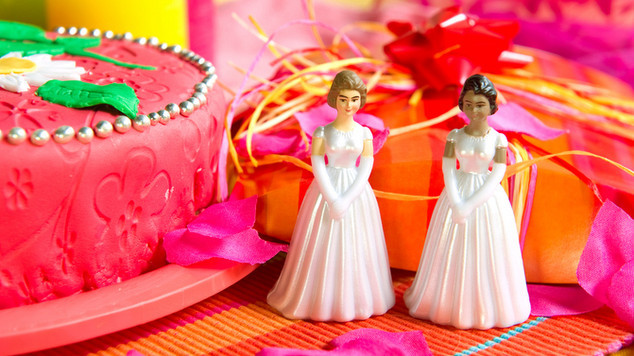
New research shows that states in the USA which embraced marriage equality sooner also had a drop in teenage suicide rates.
Warning: This story has details of suicide, which might be distressing to some readers. For 24-hour crisis support and suicide prevention call Lifeline on 13 11 14. For Australia-wide LGBTQI peer support call QLife on 1800 184 527 or webchat.
Marriage equality came slowly to the USA with state’s slowly changing their laws one by one to allow same-sex couples the right to wed.
Massachusetts was the first state to allow same sex couples the right to wed, changing their laws in 2004. By late 2014 70% of the population of the United States lived in a jurisdiction where same-sex marriage was allowed.
In 2015 the Supreme Court made same-sex marriage available across the whole country with the landmark Obergefell V Hodges decision.
The new research from Johns Hopkins’ Bloomberg School of Public Health don’t show that there is a connection between to marriage equality and dropping rates of teen suicide but researchers say the data should not be ignored by policy makers.
Suicide is the second-leading cause of death for teenagers in the USA, and suicidal behaviour is much more common among gay, lesbian, bisexual and transgender youth. About 29 per cent of LGBTIQA+ kids in the study reported attempting suicide, in comparison to just six per cent of teens who identified as heterosexual.
Julia Raifman, the project’s lead researcher said the changes in the marriage laws may have made LGBTIQA+ teens feel more welcomed in society.
The researchers analysed data on more than 700,000 public high school students who participated in government surveys on risky youth behavior from 1999 through 2015, the year the Supreme Court legalized same-sex marriage.
The questionaires identified students who reported they were gay, lesbian, or bisexual but did not always ask about student gender status. In the 32 states where marriage equality was enacted suicide attempts dropped on average seven percent for all students, but 14 per cent for the LGBTIQA+ cohort.
The study only looked at suicide attempts and did not measure deaths from suicide. The research was published in JAMA Pediatrics.
OIP Staff
Do you need some support?
If you are struggling with anxiety or depression, support and counselling are available from:
QLife: 1800 184 527 / qlife.org.au (Webchat 3pm – midnight)
QLife are a counselling and referral service for LGBTQIA+ people.
DISCHARGED: info@discharged.asn.au / discharged.asn.au
Discharged is a trans-led support service with peer support groups for trans and gender diverse folks.
Lifeline: 13 11 14 / lifeline.org.au
Beyondblue: 1300 22 4636 / www.beyondblue.org.au
You can support our work by subscribing to our Patreon
or contributing to our GoFundMe campaign.






